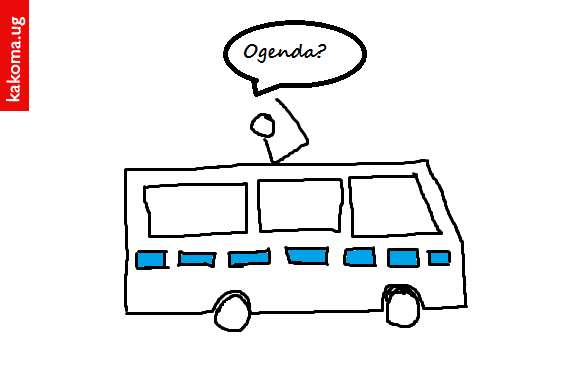Last week, in the Taxi Code, we started on a journey to educate a new taxi driver on what’s expected of him on the road. We shared quite a bit with him but we couldn’t cover everything. Here’s the rest of the taxi driver traffic code.
Your primary goal, as a driver, is to run down that taxi in as short a time as possible. See, new taxis don’t look good. They come off as lazy; any hardworking taxi looks like it is one hoot away from being spare parts in Kisekka market. Those are the taxis we real Ugandans love and are accustomed to – work towards getting yours there as fast as possible.
Pavements are part of the road. They may have some pedestrians using them, oblivious to the fact that you have right of way, but don’t mind them. Drive, hoot, drive, hoot. Also, ask them, as they curse while getting out of the way, “Ogenda?”
Humps and potholes are only seen by dimwits. Only people without purpose have time to try and dodge or slow down as they go over them. You have purpose and drive. Drive straight always. Don’t mind the people bickering in the taxi – they’ll thank you later when they get to their destination quickly. They might be in pain but that’s part of the price they have to pay.
Occasionally shout at other drivers as you go past them. It is important that you hurl insults every so often at other drivers for anything that comes to mind – driving slowly, not giving turn signals, taking forever to overtake the car ahead of them. If they want to do these things, they should drive taxis.
The next taxi is your enemy – overtake them at all costs. In your free time, watch Furious 7 and pick up some tips on driving like there’s an army of rabid robots after you. Drive fast. Overtake that taxi ahead and keep the competition between you and it going; passengers love the thrill of being part of a real life car chase – it makes them think they are in a movie.
In all this, once in a while, shock everyone by stopping to let children cross the road. Also, stop and allow another vehicle to join your lane. It is acts like these that keep you dear in people’s minds; after all the cursing, they’ll remember these acts of benevolence and think, “Maybe they aren’t that bad after all.”

